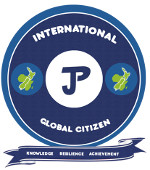
Why multilateralism matters? by the Ministry of Foreign Affairs and Trade 2020
As empires waned and independent nation-states emerged, multilateralism became more diverse and also more inclusive. With that came increasing complexity, but it remains an important mechanism for creating a functional and fairer world.
As the UN has grown it has attracted more criticism. It is often characterized as bureaucratic, expensive to run, a forum for political posturing, unable to make decisions, and ineffective in acting on the decisions it does make. For all its flaws, real and imagined, the UN has undeniably played a pivotal role on issues that defined 20th Century global politics: decolonization, development, peace and security, public health, education for girls, universal human rights, justice, and the environment.
For all its flaws, real and imagined, the UN has undeniably played a pivotal role on issues that defined 20th century global politics. Former director-general of the WTO, New Zealander Mike Moore has said the global landscape has dramatically changed in the last 50 years. “Challenges that must be globally managed keep popping up: genetic engineering, aids, and global terrorist networks. Yet the extent of these borderless forces has exploded faster than the institutional, moral, and political capacity to cope with them has.”
Former WTO director-general Mike Moore added. “A nation's domestic interests too often get in the way of a global response. And, like all big bureaucracies, many multilateral institutions struggle to control costs and maintain modern processes and systems”.Nevertheless, New Zealand believes that global challenges require global solutions. We are a strong supporter of a multilateral approach to contemporary global issues. We want to see multilateralism succeed. As a result, we are amongst a number of countries calling for reforms to ensure the UN and other multilateral institutions remain responsive and effective, and are modernized to deal with today’s challenges.
“At its best, an effective multilateral architecture can defuse tension, overcome challenges, and promote social and economic progress. But such an architecture needs to be backed by the strong will of political leaders and member states, and it needs to be based on governance structures which promote inclusive, legitimate, and effective agreements. “Former head of the United Nations Development Programme Helen Clark, 2010.
New Zealand is a small trading nation, distant from global markets. We simply don't have the global heft or easy access to systems to help us get what we need or want. We don't have the resources or influence to individually negotiate with multiple countries for all the things we need to be a successful, contemporary, globally-connected country.Our economy and our way of life relies on a network of international agreements that provide trade access, global communication and connectivity, such as the ability for people and goods to travel through seas or skies controlled by others in craft that meet universally agreed safety standards.
Global rules by definition apply to all countries equally. They are generally more robust and transparent than alternatives such as bilateral 'deals', and compliance is easier to monitor. New Zealand continues to promote and protect global rules for principled reasons as well as the pragmatic benefits we receive from legally-binding international rules. For example, we owe our extensive exclusive economic zone (EEZ) and extended continental shelf - and the living and non-living natural resources that come with these - to the United Nations Convention on the Law of the Sea. Our fishing industry and conservation interests both benefit from international rules on high seas fishery resources.
We are strong supporters of the International Criminal Court and its mission to hold war criminals to account. And as a trading nation, we all benefit from international rules banning trade discrimination.
As a country, we have strong values around fairness, democracy and respect for others. Multilateralism gives small countries like us a forum for our voice and our values. And it works both ways. We are not simply ‘takers’ in the multilateral system. Small and less powerful nations have much to offer. Our economies and political structures can be relatively nimble. We can act quickly, provide leadership, and experiment with innovative policies and institutions.
Multilateralism gives small countries like us (New Zealand) a forum for our voice and our values. Small countries can be ‘bridge builders’, moderators or peacemakers because we are often seen as impartial or non-threatening. Our lack of size – and commensurate lack of power – means we have to rely on being reasonable, cooperative, consultative, and solutions-oriented. We can build coalitions of like-minded countries and come up with creative compromises.
Big powers equally benefit from the clarity, predictability and transparency of the multilateral system and the peaceful settlement of disputes.That's why we believe a multilateral system based on global rules remains the best avenue to develop solutions to some of the world's most pressing issues.
